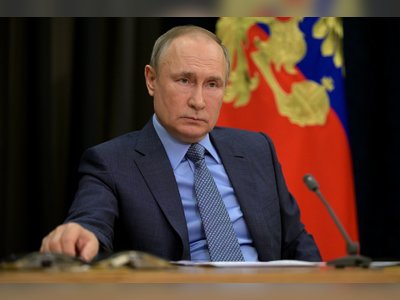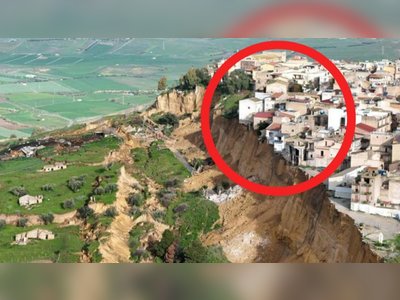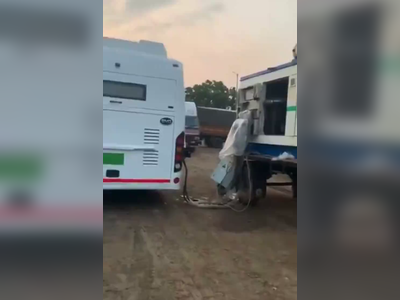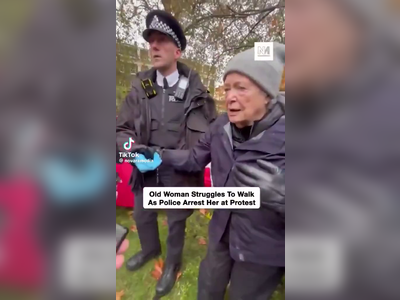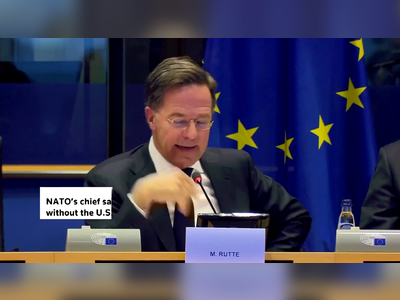U.S. Imposes Sanctions on Bosnian Allies of Hungarian Leader Orbán
Sanctions target individuals connected to Milorad Dodik, the Bosnian Serb leader, under a new executive order aiming to curb destabilizing actions in the Balkans.
The United States has imposed sanctions on several individuals in Bosnia and Herzegovina identified as part of a network surrounding Milorad Dodik, the leader of the Serb-majority region within the country.
These measures are enacted under a newly introduced executive order, 14140, unveiled by President Joe Biden a week ago, designed to penalize actors who contribute to discord in the Balkans.
The sanctions against Dodik’s associates were justified by allegations of personal and familial enrichment at the expense of public funds, as well as actions that violate the foundational principles of the Dayton Agreement.
This includes orchestrating the celebration of the Republika Srpska Day last January, an event considered antagonistic to the multiethnic harmony envisaged by the peace accord.
Bradley T. Smith, the head of the Office of Foreign Assets Control (OFAC), which administers these sanctions, stated that Dodik’s circle consistently undermines the democratic and multiethnic fabric upon which modern Bosnia and Herzegovina is built.
Central to the sanctions is Igor Dodik, Milorad Dodik’s son, who has been identified as leading a series of individuals listed under these restrictions.
The sanctions divide into two core groups: one headed by Igor Dodik, primarily accused of corruption, and another that organized the secessionist Republika Srpska Day.
The nature of these sanctions mirrors those previously imposed on Antal Rogán, as they include the confiscation of any American-held assets and a ban on entering the United States.
Moreover, persons and entities engaging in business with those sanctioned face potential punitive measures.
The Hungarian government, led by Prime Minister Viktor Orbán, maintains a close relationship with Milorad Dodik, who has even received the highest honors from the Serb Republic.
Orbán’s administration has also provided financial support to Dodik's government, further entangling regional politics in a complex web of alliances.
These measures are enacted under a newly introduced executive order, 14140, unveiled by President Joe Biden a week ago, designed to penalize actors who contribute to discord in the Balkans.
The sanctions against Dodik’s associates were justified by allegations of personal and familial enrichment at the expense of public funds, as well as actions that violate the foundational principles of the Dayton Agreement.
This includes orchestrating the celebration of the Republika Srpska Day last January, an event considered antagonistic to the multiethnic harmony envisaged by the peace accord.
Bradley T. Smith, the head of the Office of Foreign Assets Control (OFAC), which administers these sanctions, stated that Dodik’s circle consistently undermines the democratic and multiethnic fabric upon which modern Bosnia and Herzegovina is built.
Central to the sanctions is Igor Dodik, Milorad Dodik’s son, who has been identified as leading a series of individuals listed under these restrictions.
The sanctions divide into two core groups: one headed by Igor Dodik, primarily accused of corruption, and another that organized the secessionist Republika Srpska Day.
The nature of these sanctions mirrors those previously imposed on Antal Rogán, as they include the confiscation of any American-held assets and a ban on entering the United States.
Moreover, persons and entities engaging in business with those sanctioned face potential punitive measures.
The Hungarian government, led by Prime Minister Viktor Orbán, maintains a close relationship with Milorad Dodik, who has even received the highest honors from the Serb Republic.
Orbán’s administration has also provided financial support to Dodik's government, further entangling regional politics in a complex web of alliances.
AI Disclaimer: An advanced artificial intelligence (AI) system generated the content of this page on its own. This innovative technology conducts extensive research from a variety of reliable sources, performs rigorous fact-checking and verification, cleans up and balances biased or manipulated content, and presents a minimal factual summary that is just enough yet essential for you to function as an informed and educated citizen. Please keep in mind, however, that this system is an evolving technology, and as a result, the article may contain accidental inaccuracies or errors. We urge you to help us improve our site by reporting any inaccuracies you find using the "Contact Us" link at the bottom of this page. Your helpful feedback helps us improve our system and deliver more precise content. When you find an article of interest here, please look for the full and extensive coverage of this topic in traditional news sources, as they are written by professional journalists that we try to support, not replace. We appreciate your understanding and assistance.

